13 July, 2021
Your Autonomic Nervous System: A Missing Piece to Your Health Journey
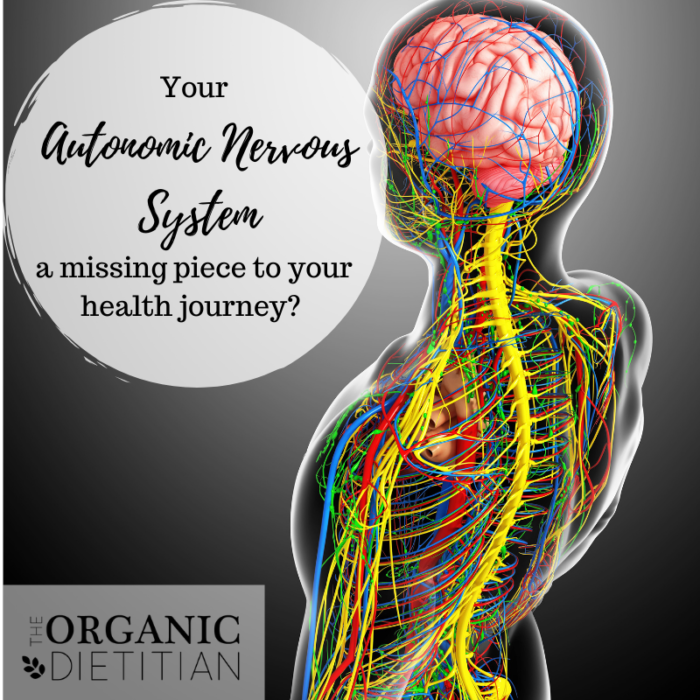
I am constantly preaching that the body is all connected. I can’t tell you how many women come to us feeling like they have tried everything to address their health complaints yet after a deeper conversation I actually see a lot of areas that aren’t being properly addressed. Areas that are given little consideration. So we work to educate on those areas and when clients work with us we can provide strategies on how to support them.
One important system that I see overlooked a lot that I wanted to address today in the autonomic nervous system or ANS for short.
Here is what we will be covering in this post…
- What is the Autonomic Nervous System?
- Autonomic Nervous System Branches
- Signs your Autonomic Nervous System is Dysfunctional
- How your Autonomic Nervous System Becomes Dysfunctional?
- Tips to Support Your Autonomic Nervous System
What is the Autonomic Nervous System?
The ANS is the part of the nervous system that supplies the internal organs, including the blood vessels, stomach, intestine, liver, kidneys, bladder, genitals, lungs, pupils, heart, and sweat, salivary, and digestive glands.
It interprets environmental inputs and then regulates organ function accordingly to keep the body in a state of adaptation.
Environmental inputs come from internal and external sources.
If the ANS does not interpret and respond appropriately to environmental inputs, the body will not properly adapt to stressors placed upon it.
And a dysfunctional ANS leads to a dysfunctional body and mind.
So hello symptoms related to digestion, cellular energy production, immune function, detoxification, hormone imbalance, and more.
The ANS gets thrown out of whack when the level of physical, environmental, biochemical, emotional, mental, and (or) spiritual stress placed upon it exceeds the ability to adapt. And, stressors will vary from person to person.
Autonomic Nervous System Branches
Your ANS actually has three branches.
One being our rest, digest, and social engagement. This is the branch that is needed for proper digestion, healing and the ability to relate well and interact with others. Unfortunately this is the branch that most people spend little time in due to internal and external stressors.
Two being our fight, flight or flee response. We need this branch for survival in times of true emergencies and stressful situations that threaten our survival. The body can treat just about any stress (even ones that aren’t life threatening) by tapping into this branch.
Third branch triggering immobilization, shut down and loss of hope. This branch can also be more active during times of depression or with major traumatic experiences in which we feel powerless to act.
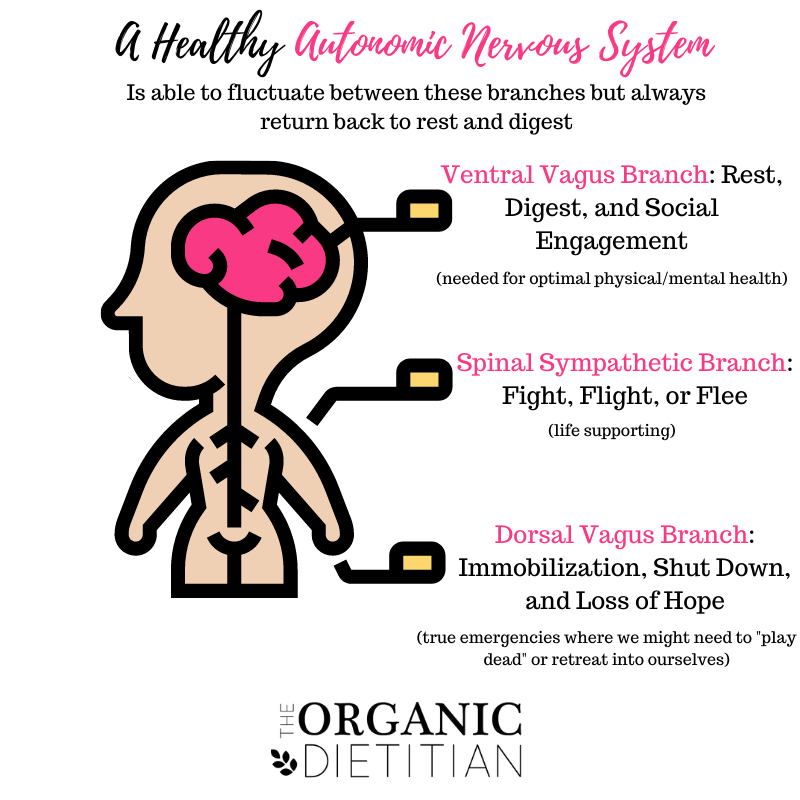
A healthy, well balanced ANS is able to move between the branches as needed but will always easily return back to rest and digest mode (which is where we should be spending much of our time).
If the ANS becomes overwhelmed it can get stuck in fight or flight mode or freeze mode and can even bounce back and forth between the two.
When this happens our health, mood and life can suffer. And challenges can continue until the ANS is brought back into balance. Optimal health requires the ANS to feel safe more often than not.
Signs Your Autonomic Nervous System is Dysfunctional
Let’s talk about some signs that your ANS could be dysfunctional. Because awareness is often the first step. We can’t change or work on what we don’t know or acknowledge. Autonomic Nervous System (ANS) Dysfunction is involved in varying degrees to ALL poor health states but some signs can include…
- Blood pressure and heart rate dysregulation, especially upon standing from a seated or lying position
- Lightheadedness, dizziness, and a propensity to faint easily
- Digestive motility issues such as recurring SIBO and gastroparesis
- Poor blood sugar regulation that does not respond to other interventions
- Frequent urination, especially at night
- Brain fog and ADHD
- Frequent hunger despite eating ample amounts of food
- Chronically sore upper back, shoulders, and neck that do not respond to other interventions
- Chronic fatigue syndrome and fibromyalgia
- Chronic immune activation and autoimmune conditions
- Inability to heal a leaky gut despite huge interventions
- Inability to overcome chronic health conditions despite HUGE efforts
- AND MUCH MORE!
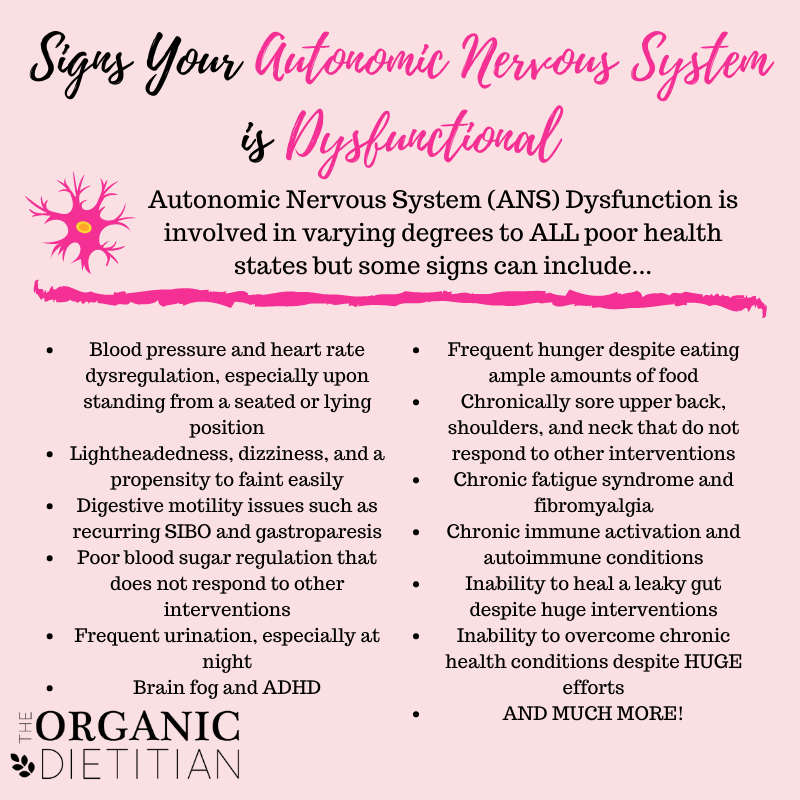
It is important to understand that in our experience every woman that comes to us with any symptom likely has some ANS dysfunction and we believe it is a crucial piece to any health journey. But here are some specific red flags to look for.
This area is where I see a lot of people fall short. Just looking for that perfect test that will tell them exactly what is wrong. Finding that perfect supplement protocol that will eliminate their parasites, candida, or H pylori. The one herb that will fix all their hormone imbalances. Cut out the right foods that will make their gut feel better again.
And sure tests, supplements, and nutrition can be important pieces to your solution. But if imbalances in your ANS aren’t also addressed then those biochemical interventions may not be as effective or work at all. This is why we make it a critical part of working with our clients.
The longer dysfunction goes on and the more our mind and body get wired for dysfunction the more challenging it can be to get out of (but not impossible).
So tell me, do you resonate with anything on this list?
How Your Autonomic Nervous System Becomes Dysfunctional
There are tons stressors and traumatic life events (we all have some) that can knock your ANS out of balance and keep you stuck in chronic stress mode if you don’t work to support yourself during or after the stressors. The more of these we experience the more dysfunction may happen over time. Staying in this state of chronic stress compromises our organ systems and their functions creating the perfect storm for poor health.
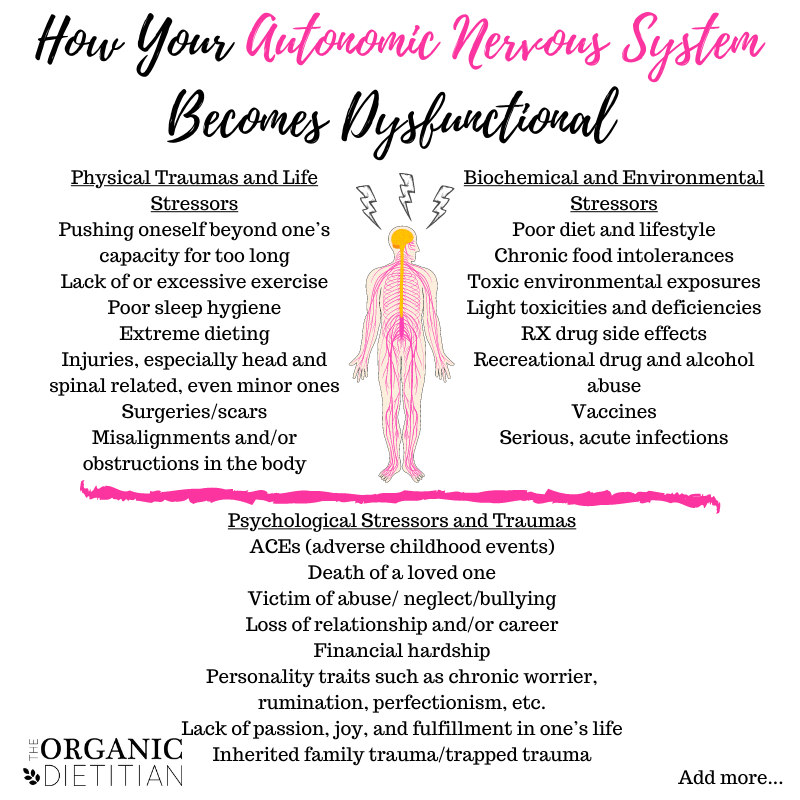
So you see, how you address your ANS may be different from someone else because your stressors that caused the dysfunction in the first place might be different. We don’t all respond or resonate with the same support either.
Tips to Support Your Autonomic Nervous System
Balancing your nervous system requires daily support and habits. As I mentioned last, don’t forget or skip on addressing what is causing your ANS to be stuck in fight, flight, or shut down. There will be multiple factors that need addressing as nobody just has one cause. We guide our clients in addressing causes but also provide a ton of strategies for how to support the nervous system daily.
Here are just a couple you can start implementing now while you work on addressing the root causes.
- Deep breathing: Take a deep slow breath through your nose, focusing on your belly moving outwards. Once you have a full breath, hold for 1-2 seconds and then slowly release it. Repeat this cycle for 1-2 minutes. If it helps you to focus on your deep breathing, then try counting for 4 seconds on the breath in and 5 seconds on the breath out.
- Meditation
- Spend time in nature
- Engage in positive social relationships
- Gentle yoga practice
- Heartmath
No matter if you are looking to heal your body or keeping it in tip top shape, I believe that making a daily habit out of supporting your autonomic nervous system is critical!




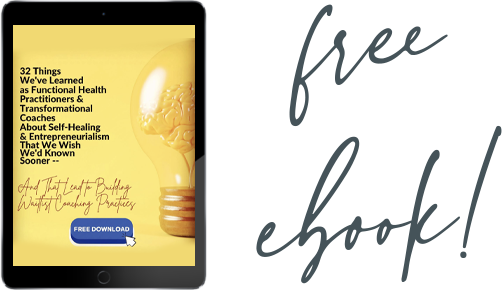










 80% of chronic dis-ease is rooted in stre
80% of chronic dis-ease is rooted in stre
 As
As 
